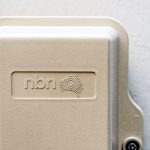How to Manage Cash Flow in a Small Business
Financial management can be difficult for many organization, regardless of their size. However, for small businesses, it is particularly hard as they do not have the liquidity and money as big businesses do. So, for effective and efficient cash management is very important. It is important that you always have cash in hand. Even though if you do not have cash, your business does not fail, but then you would need to liquidize your investments which really isn’t the best move. This is why we will give you some tips and tricks for how you can maintain effective cash flow and make sure you meet your deadlines at the right time for paying suppliers, paying for products and more.
- Long term financing
When you buy products like real estate or equipment, they should be bought from your working capital and not from your long term assets. This will help maintain the working capital in its place and will help you run the business more efficiently. This will allow you to spread the payment over a large period of time without affecting your working capital.
- Liquidate cash with assets
If you have machinery that is no longer in use or have assets that are of no use or are rarely used by the business and the business can afford to give them away, then you should liquidate them. This will give you an injection of cash and help increase your cash flow which could be used as working capital.
- Delay your payables
This is something that most businesses do when they are running out of working capital. You should delay your payables until you absolutely need to. However, do this without severing ties or causing any issues between the parties. There is no need to pay early, and buy yourself time until the cash comes into your businessmen When it does then pay up your dues.
- Create a separate bank account for personal and private use
The most common mistake, especially in small businesses is that they tend to have the same personal and business account. With this, you are unable to differentiate between your personal expenses and your business expenses, which can complicate things for both you and the business. This is why it is important that you have a separate account for your business and a separate account for your personal expenses to make sure you can keep track of the money and find out where you lost the cash and how to get it back.
- Monitor Inventory
It is important that you monitor your inventory properly so you can liquidate what you do not need and it will help you keep track of what is going on, where and how to manage it efficiently to create more working capital for the business, and get more liquidity within the business. This is why it is important to keep a close track of inventory.
There are many other ways of managing cash flow in a business, and an example is business car lease or keeping buffer money. However, it all depends on what works well for your business.











